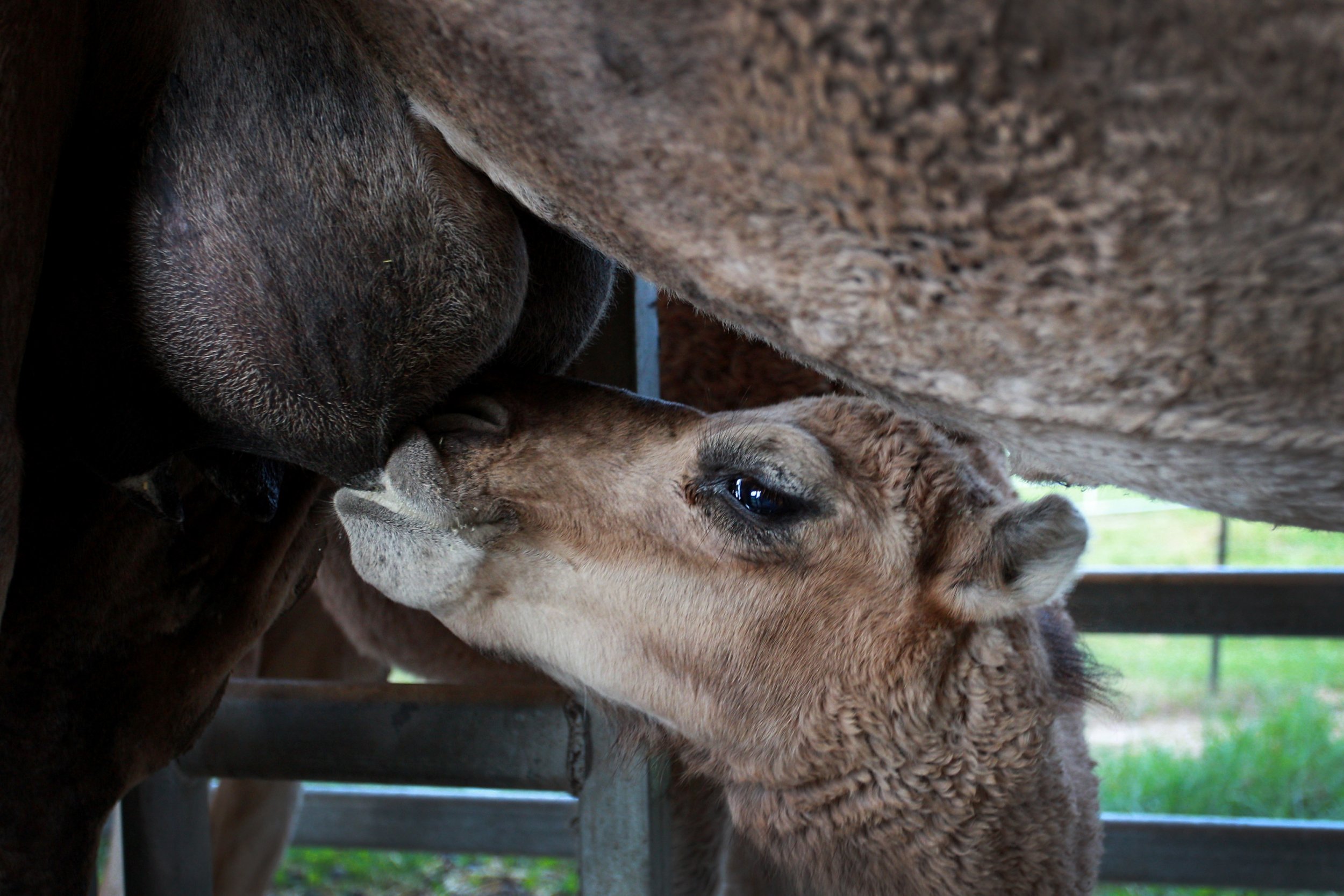
A video of an Islamist leader purportedly drinking a mixture of camel urine and camel milk in Saudi Arabia has sparked debate over the health dangers of the practice in his native Indonesia.
Bachtiar Nasir is the chairman of the National Movement of Fatwa Guards Majelis Ulama Indonesia (GNPF-MUI) movement, an organization of hard-line Islamist groups that led last year's protests against Jakarta's Christian governor Basuki Tjahaja Purnama, popularly known as Ahok, accusing him of insulting the Koran, last year.
In the video, Bachtiar can be seen pouring the amber-colored content of a plastic bottle into a bowl, combining it with a white liquid and then taking a sip from it, describing the flavor as bitter and rich. The video was shared on his Instagram page, where he has half a million followers, last week and it has since been viewed more than 200,000 times, sparking an online debate over the drink's health benefits among all levels of Indonesian society, including politicians, as BBC Indonesia reported.
The Islamist cleric defended the consumption of the drink in the video caption, claiming the mixture of camel urine and milk has medicinal benefits. He quoted verses from the Hadiths, which record the traditions or sayings of the Prophet Muhammad and are second in authority only to the Koran.
But scientists in Muslim and non-Muslim majority countries reject the claims, and actually link the consumption of camel urine to the spread of a disease known as Middle East Respiratory Syndrome Coronavirus (MERS). The disease was first identified in Saudi Arabia in 2012 and caused the death of 36 people during an outbreak in South Korea in 2015.
According to the World Health Organization (WHO), the virus is transmitted from dromedary camels to humans, and as such it is advisable to avoid contact with the animals. "People should avoid contact with camels, drinking raw camel milk or camel urine, or eating meat that has not been properly cooked.
The Indonesian Health Ministry is of the same opinion. In a statement to CNN Indonesia, the ministry's spokesperson Oscar Primadi warned against repeating Bachtiar's actions, quoting the WHO advice.
Bachtiar is a controversial figure in indonesian politics, having been investigated for alleged money laundering to fund the Islamic State militant group (ISIS)—which proved inconclusive—and for leading a campaign to ban extramarital and gay sex, which the Indonesian Supreme Court rejected, as reported in Global Voices.
Indonesian professor Noorhaidi Hasan, who teaches Islamic politics at the State Islamic University of Sunan Kalijaga in Yogyakarta, told the BBC Bachtiar's post is deeply political. Hasan said it represents the wider debate between conservative and progressive Islam that characterized the Jakarta gubernatorial elections in 2017, which saw Ahok's defeat, and will continue to affect the country's political situation ahead of the 2019 election.
Uncommon Knowledge
Newsweek is committed to challenging conventional wisdom and finding connections in the search for common ground.
Newsweek is committed to challenging conventional wisdom and finding connections in the search for common ground.
About the writer
Sofia Lotto Persio reports mainly on Asia and gender issues for Newsweek. She previously covered international affairs with a specific ... Read more
To read how Newsweek uses AI as a newsroom tool, Click here.








